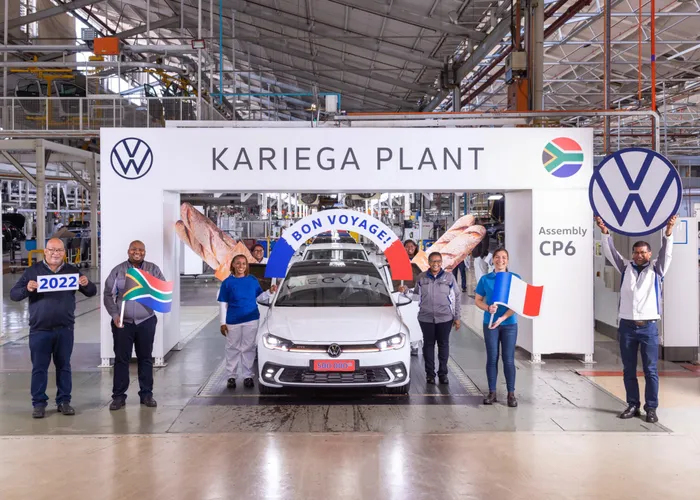VWSA ‘here to stay’, with more Polo exports for now, but 3rd product decision delayed

Volkswagen South Africa’s Managing Director Martina Biene says the local operation is here to stay.
This comes days after the company’s global CEO Thomas Schäfer said he was “very worried” about the viability of the South African manufacturing operation, given the increasing cost of mitigating load shedding disruptions as well as port delays and rising labour costs.
However during a year-end function on Monday that was attended by local media, VWSA boss Biene reiterated that although the issues raised by Schäfer are of huge concern, the company currently had no plans to leave South Africa.
In fact Biene said the local operation was planning to increase production of its Polo to a record volume of 163,000 units in 2024.
To ensure this is possible without disruption, the company was planning to spend around R130 million over the next two years on renting generators and fuelling them with diesel. In recent times the company has also resorted to air freighting some car parts due to the port delays.
From the middle of next year the local plant in Kariega, Eastern Cape, will become the sole producer of Polo hatchbacks for the European market. This will happen as the Pamplona plant in Spain is discontinuing the Polo to make room for the new ID.2 electric hatchback.
However in line with the relaxed Euro 7 regulations, the current Polo won’t be sold in Europe beyond 2028 and is also set to be discontinued in other markets by 2029 with no word on a possible replacement.
This, it would seem, is where the danger lies for the local Kariega plant.
Biene said that beyond 2028 Europe was not looking towards South Africa as an export hub, due not only to the continent’s electric shift but also because there are many under-utilised plants in the EU region.
“Our biggest competitor is our internal environment at Volkswagen,” Biene said. “So we’ve got 117 plants around the world, and these compete for investment.
“Given that that there is also an electric future for Europe as well as regions like China and the US, the company has to consider all aspects of investment and South Africa at this point in time doesn’t make it easy as an investment destination.”
The SA government’s delayed EV incentive policies are another point of concern for VWSA.
“So our future lies in Africa as an export destination and we will embrace that,” Biene said.
However, in order to maintain the plant’s current production volumes, which should amount to over 13,000 units per month if next year’s targets are met, the company is going to have to look beyond the African continent for exports.
In terms of investment, and in order to lessen its dependence on European Polo exports that will dry up in 2028, VWSA has been looking at adding a third product to the plant, joining the current Polo and Polo Vivo.
“The third-product announcement has unfortunately been delayed once again, but we are very confident that it will happen at the beginning of next year,” Biene said on Monday.
“It’s still the A0 entry SUV and it’s still based on the MQB 27 platform, we just need to fix some logistical issues in order to reach the final milestone.”
This SUV is reportedly being developed in conjunction with Volkswagen of Brazil and a bakkie version has also been previously rumoured.
So what does the future hold for Volkswagen in South Africa?
As far as we see it the company remains committed to our market and is doing all it can to mitigate the many hurdles.
However the plant is competing with 117 others around the globe for export contracts to remain viable and unless there is urgent intervention on the part of government, VWSA will struggle to attract the large export contracts that it needs to maintain current production levels.
Regardless of how committed the company remains, in our view there seems to be a significant danger of having to downsize its production operation after the Polo export contract run out in 2028.
Related Topics: